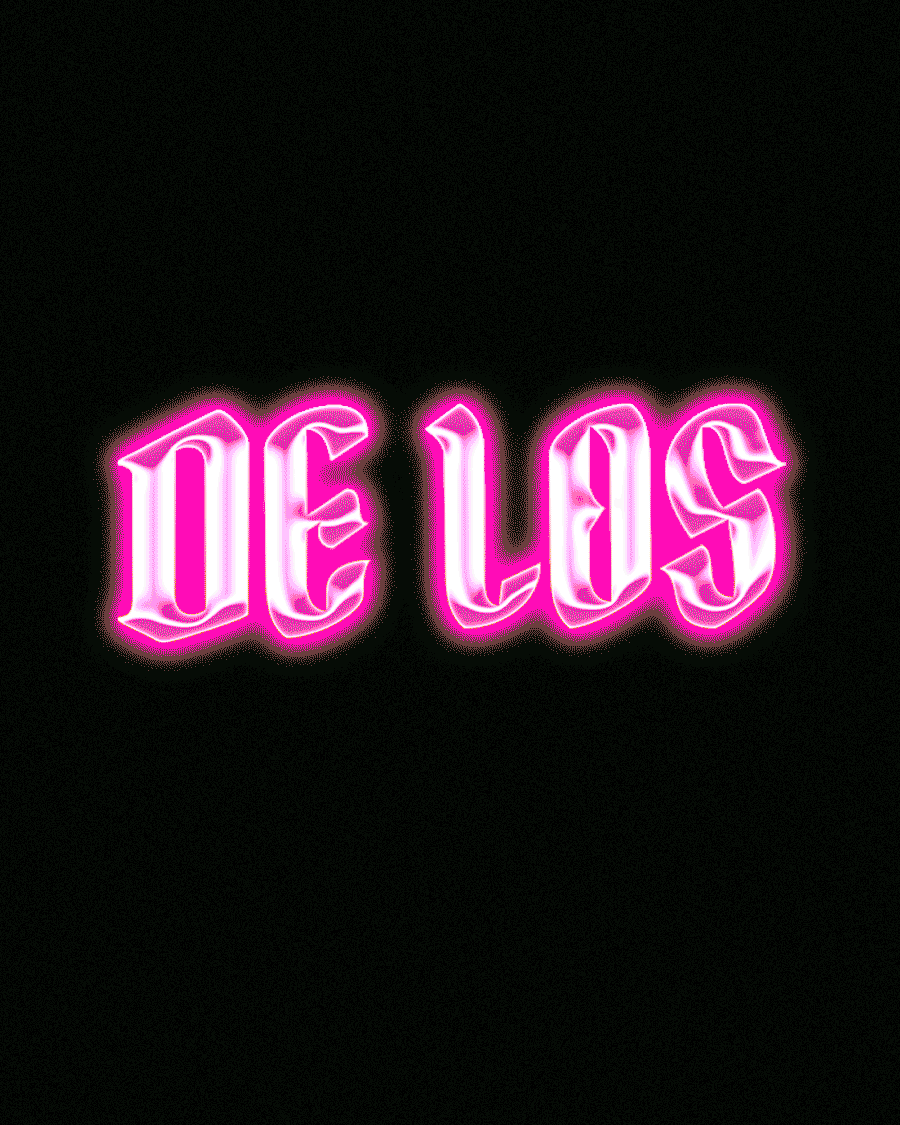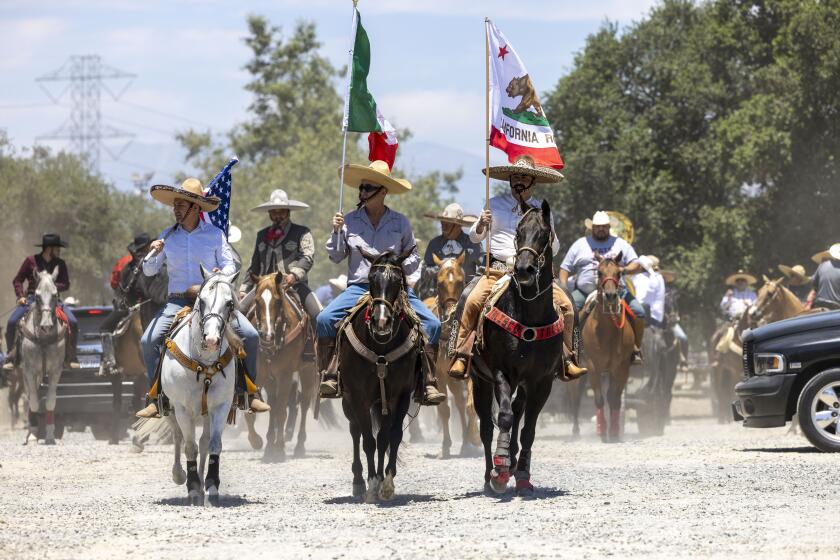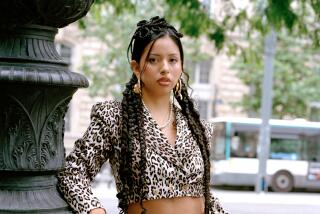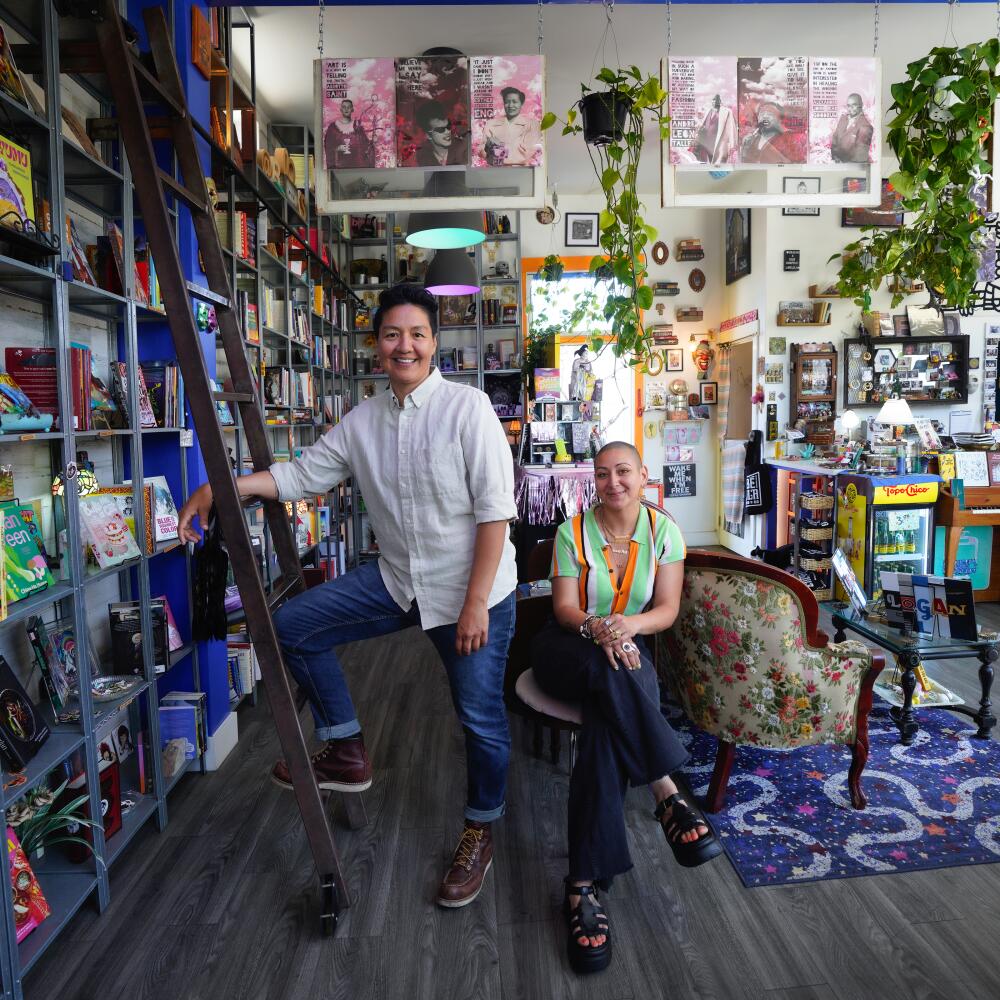
When I called Jesi Gutierrez on a Friday afternoon, I could hear someone playing the piano in the background. School just got out, they told me, and teenagers often stop by at this time, to browse stacks of books and play the piano inside Libélula, the space Gutierrez and their partner Celi Hernandez opened in 2021.
Just shy of their two-year anniversary of opening the San Diego shop, the couple has been busy using the space for screenings, readings, panels, art installations and anything else local artists and creatives dream up. Gutierrez says they get emails about events almost daily.
An exploration of marketing terms like ‘200%’ and how that’s shaped our identity.
Gutierrez and Hernandez have cultivated a space that welcomes all, particularly queer folks in the area. Before opening Libélula, Hernandez worked in coffee and Gutierrez was a teacher. Their story sounds like the jacket copy of a romance novel: Two creative folks lock eyes in a bookstore (in this case, The Upstart Crow). Their mutual love of the neighborhood and books is palpable, and soon, they open a space they can call their own.
“It’s like the cheesiest story that I’ve ever heard,” said Gutierrez. “But honestly, that’s exactly how it happened. I can’t make it up.”
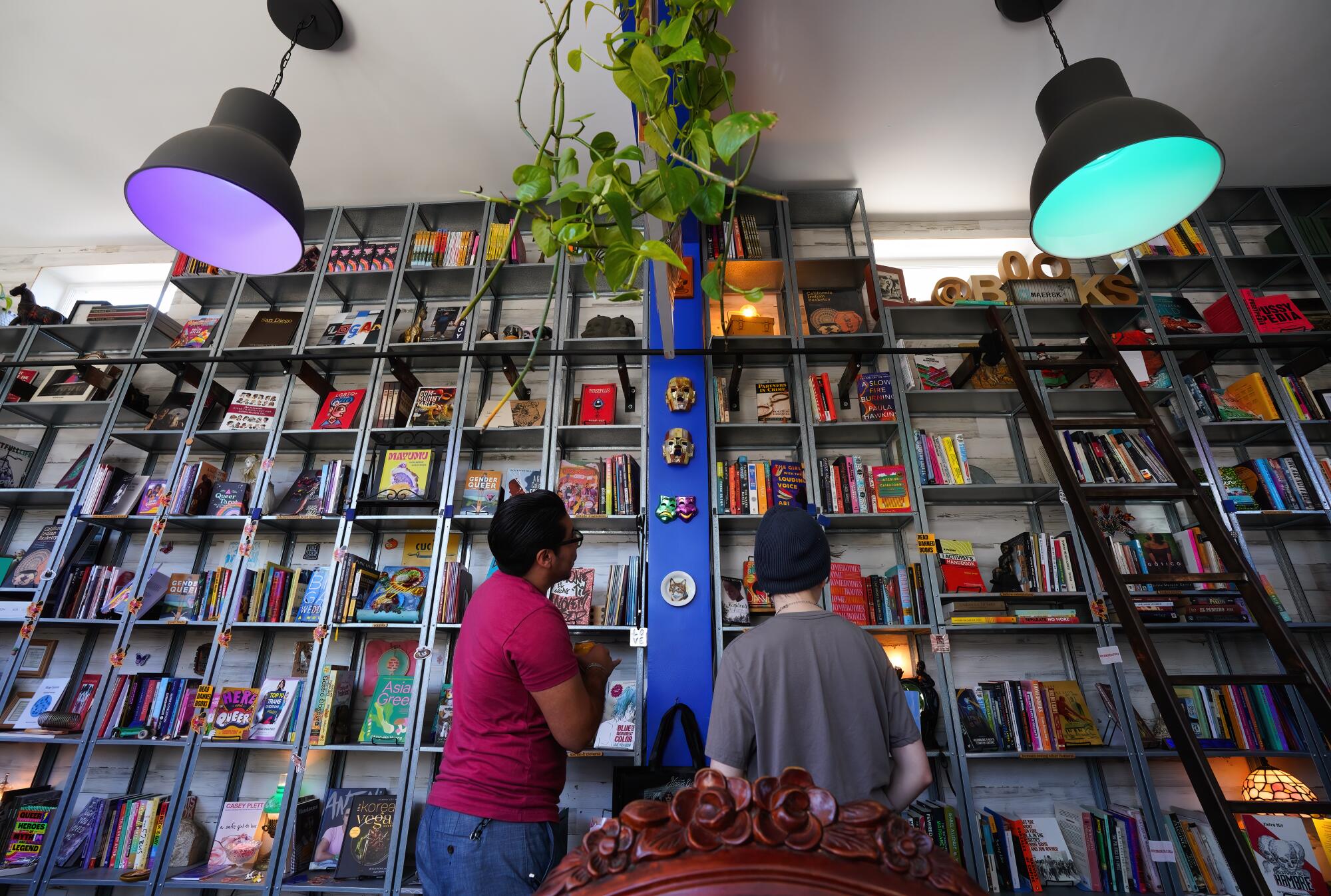
The owners’ commitment to queer communities and communities of color comes through in Libélula’s book selection, which includes both English and Spanish titles. Gutierrez and Hernandez consistently show up as their full selves and channel their creativity into the bookstore.
“We have a ton of queer books on the shelf that are super celebratory,” said Gutierrez. “There are some that are very real, depicting the experiences of folks that struggle, and that have struggled. That’s very much a part of our BIPOC queer history. But we also have so many celebratory and bright and beautiful books that just proclaim such an authoritative voice… that say, ‘Not only is it OK, this is badass, this is amazing. Who you are is exactly who you’re supposed to be.’”
The couple lives just a few blocks from Libélula, and they often collaborate with artists to sell their work in the space — many times on a sliding scale, at the request of the makers. They also make a point to buy art outright, rather than on consignment.
The bookstore has hosted DJs, astrology workshops and queer speed dating. Billi, a polydactyl cat that the couple adopted after it quickly befriended them, roams around the space or naps on the couch or a window hammock. The couple often plays vinyl records as a soundtrack for visitors perusing the shelves.
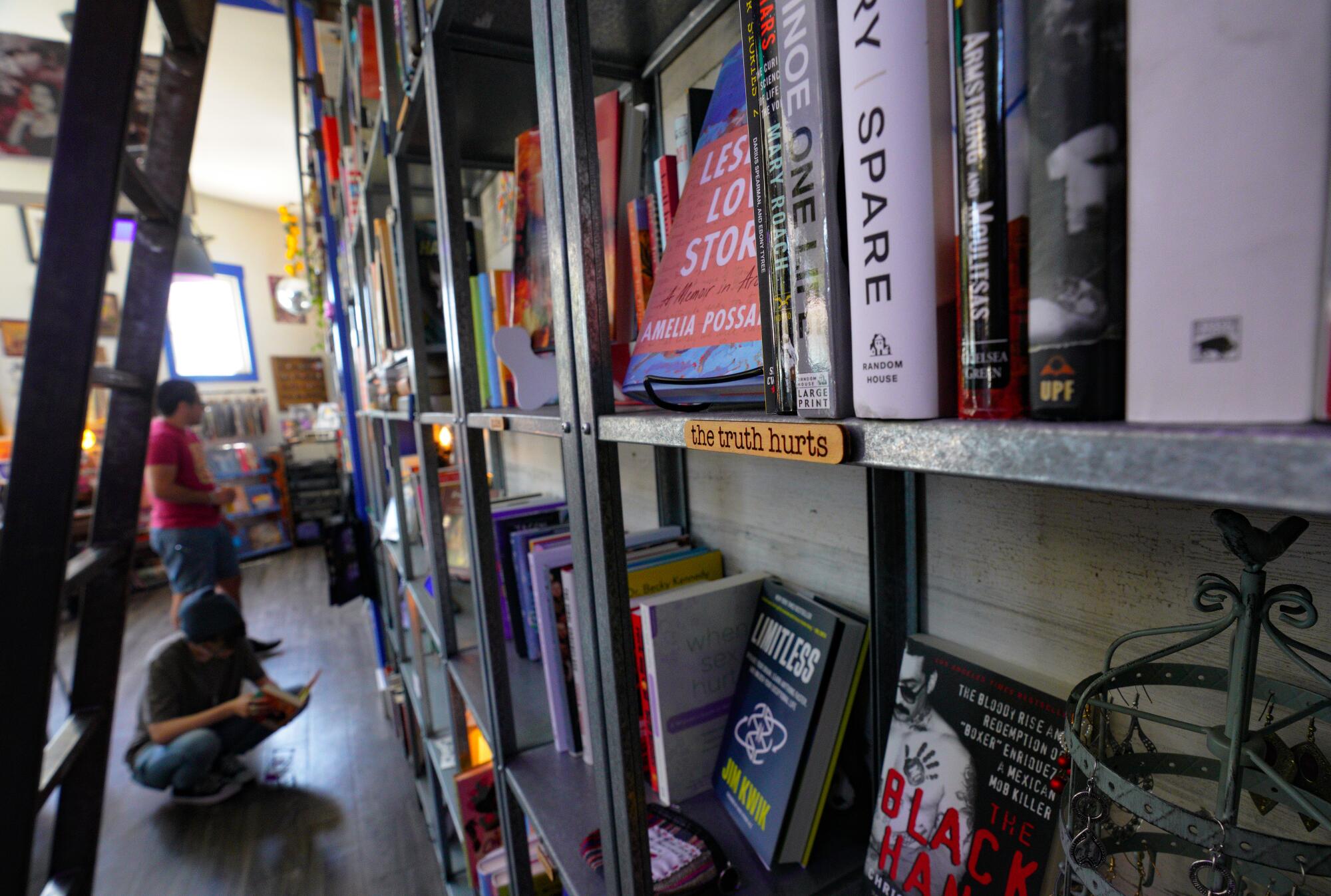
Growing up, Gutierrez didn’t have many models for queer couples. They grew up in a “very traditional Mexican household.” In high school, Gutierrez found solace at Barnes & Noble, where they sat in the “gay and lesbian section,” quietly learning about queer identity.
“That was my pocket of time in the day where I could feel super comfy, be curious about things, pick up a book, read the word ‘lesbian,’” said Gutierrez. “Because in my household, unfortunately, that was a bad word — that’s not something you’re supposed to talk about.”
Hernandez came out at a later age. While attending college at California State University, Los Angeles, Hernandez volunteered at the Los Angeles LGBT Center, where she learned more about queer history and gender identity.
Jesse Leon, author of the memoir “I’m Not Broken,” which was a 2023 Lambda Literary Award finalist, connected with Libélula’s co-owners through the San Diego Festival of Books. Leon and author Reyna Grande did a book signing together, with copies supplied by Libélula.
With the launch of De Los, we are trying to explore the contours of Latinidad and what it says about our communities.
Leon had just moved back to San Diego and was excited to see the space there, especially as a kid growing up going to the public library.
“As soon as I was walking in, it said ‘queer-owned,’” said Leon. “I said, ‘Queer-owned in the barrio?’ This is awesome.”
“I’m Not Broken” has empowered Leon to feel like “a part of the literary world,” even while he recognizes that representation for BIPOC queer authors is still lacking. “When I don’t see my book in bookstores across the country that are queer-owned or in gay neighborhoods, it hurts,” said Leon. “You feel somewhat deflated, but I try to focus on the positive and the bookstores in the communities that have supported me.”
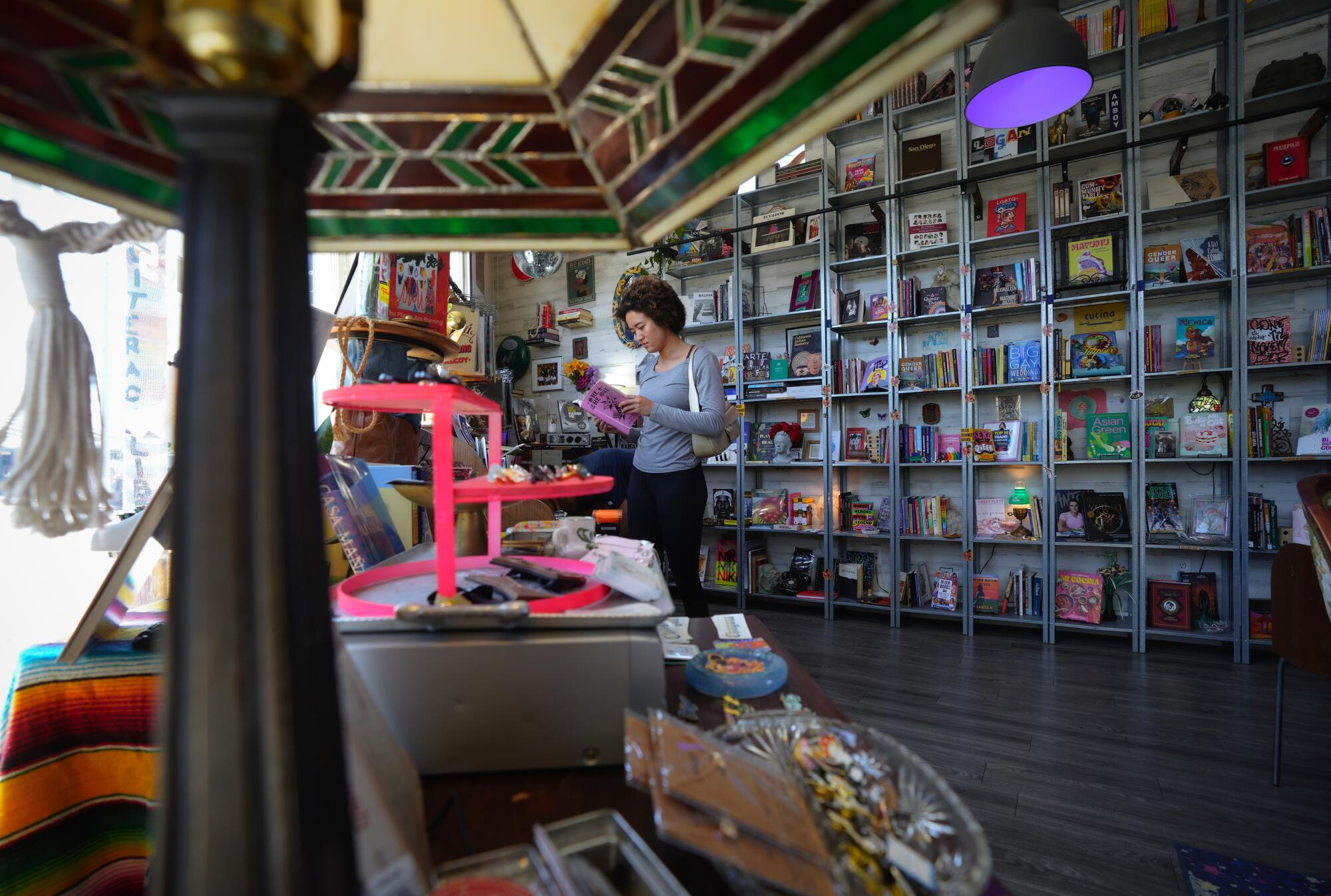
Many authors, he says, feel pressured to focus on whether bookstores will significantly help sales of their book (particularly, whether they are “a reporting entity,” Leon said). If not, they often decline to do events in certain spaces. But Leon stresses that creating community feels even more significant. Seeing Libélula, he thought about his younger self — and what it might have meant for him to walk into a space like this as a kid.
“The fact that it’s available now, and they took the risk to do so, is empowering for many of us,” said Leon. “My goal is that we support queer-owned, Latine-owned bookstores in our communities to be successful businesses and centers of intellectual stimulation and energy.”
Started by millennial activists, the Avocado Heights Vaquer@s are helping mobilize equestrian communities to fight expansion that threatens an agrarian way of life.
When asked about their hopes for queer youth, Gutierrez says the next generation is already pushing back.
“Our youth are very rebellious, and I love that for them,” said Gutierrez. “I love that for us, for all the generations before. I hope that they don’t lose their imagination. I hope that capitalism and these really oppressive systems that we are sometimes forced to work within have not driven their creativity from them. Because those two things — creativity and imagination — are really what is going to help propel and create new ideas and different systems. It’s our job as elders to model that.”
Eva Recinos is an arts and culture journalist and creative nonfiction writer based in Los Angeles. She is the creator of Notes from Eva, a free monthly newsletter for creatives.
More to Read
The Latinx experience chronicled
Get the Latinx Files newsletter for stories that capture the multitudes within our communities.
You may occasionally receive promotional content from the Los Angeles Times.


